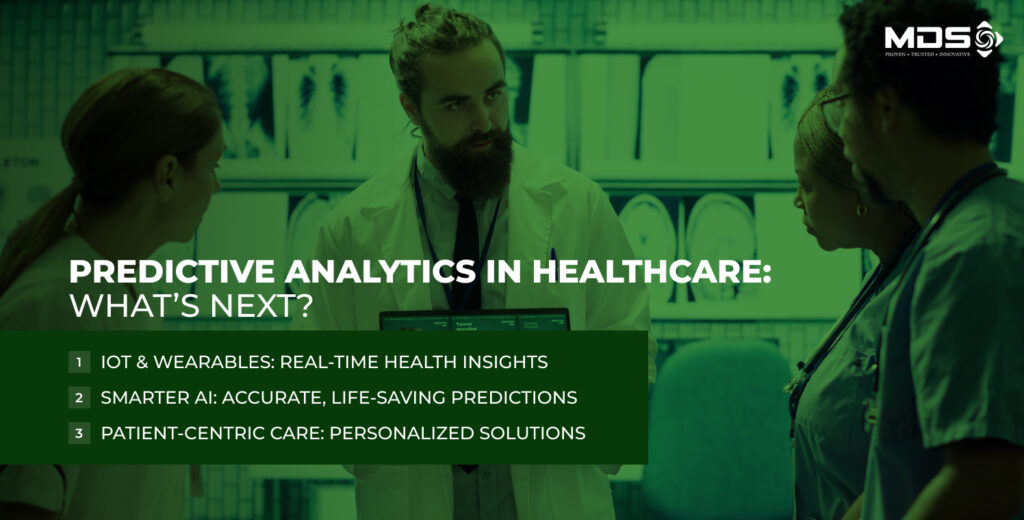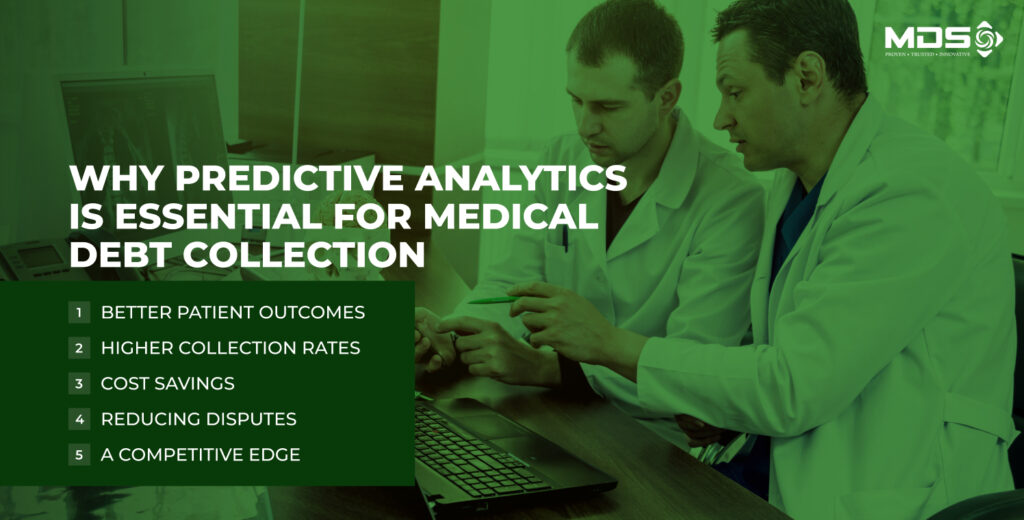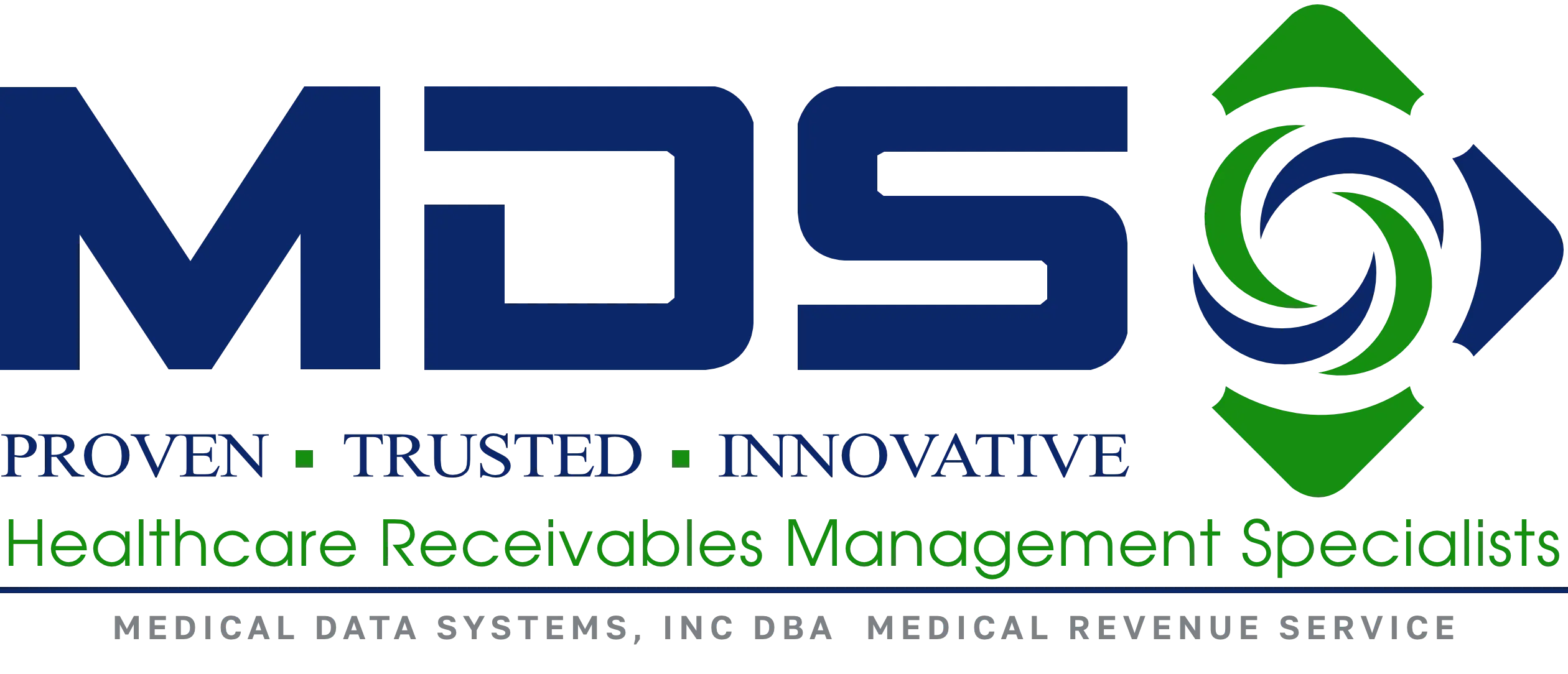Imagine being able to predict health issues before they happen, prevent hospital readmissions, and receive care tailored just for you. Sounds like something out of a sci-fi movie, right? Well, it’s not—it’s the power of predictive analytics in healthcare. By using historical data, artificial intelligence (AI), and machine learning, predictive analytics is revolutionizing how we approach patient care and shaping the future of data analytics in healthcare.
What is Predictive Analytics in Healthcare?
Let’s break it down simply: Predictive analytics in healthcare is about using data to predict what might happen next. It takes information from patient records, lab results, and treatment histories, then uses AI and machine learning to spot patterns and forecast outcomes. Think of it as a crystal ball for healthcare—but one backed by science.
For example, hospitals can predict which patients are at risk of readmission and step in early to prevent it. Public health officials can use it to foresee disease outbreaks and prepare accordingly. The goal? To make better decisions, improve patient outcomes, and create a healthcare system that’s proactive, not reactive.
How Predictive Analytics is Transforming Patient Care
Here’s where it gets exciting. Predictive analytics in healthcare isn’t just a fancy tool—it’s changing lives. Here’s how:
- Early Disease Detection and Prevention: Imagine catching a chronic disease like diabetes or heart disease before it becomes a major issue. Predictive analytics makes that possible by analyzing data to spot early warning signs.
- Personalized Treatment Plans: No two patients are the same, and predictive analytics helps doctors tailor treatments to your unique needs. It predicts how you’ll respond to a treatment, reducing side effects and improving outcomes.
- Reducing Hospital Readmissions and Costs: By identifying patients at risk of readmission, hospitals can provide targeted follow-up care, saving money and keeping you healthier.
This isn’t just about technology—it’s about empowering healthcare providers to deliver care that’s proactive, personalized, and effective.
The Future of Data Analytics in Healthcare: What Lies Ahead

The future of data analytics in healthcare is bright, and predictive analytics is leading the charge. Here’s what’s on the horizon:
- IoT and Wearable Devices: Real-time data from smartwatches and health monitors is revolutionizing health tracking and enabling early detection of potential issues.
- Smarter AI and Machine Learning: Enhanced algorithms are delivering more precise and actionable predictions, improving patient outcomes and saving lives.
- Patient-Centric Care: Predictive analytics is fostering personalized, patient-focused care models tailored to individual needs and preferences.
The potential is huge. From reducing healthcare disparities to tackling global health crises, predictive analytics is set to make a lasting impact. For healthcare providers, adopting solutions like Extended Business can help integrate these advancements seamlessly into their operations.
Challenges and Ethical Considerations
Of course, no technology is perfect. There are challenges to implementing predictive analytics in healthcare:
- Data Privacy and Security: Your health data is sensitive, and protecting it is non-negotiable.
- Accuracy and Bias: Predictive models need to be accurate and free from biases to ensure fair outcomes.
- Skilled Professionals: We need more experts who can interpret and act on these insights effectively.
Ethical considerations, like patient consent and transparency, are also crucial. Addressing these challenges responsibly ensures that predictive analytics benefits everyone. For example, System Conversion Assistance can help healthcare providers transition to predictive analytics systems while maintaining data integrity and security.
Why Predictive Analytics is Essential for Medical Debt Collection

Let’s talk about why predictive analytics in healthcare isn’t just transforming patient care; it’s revolutionizing medical debt recovery:
- Better Patient Outcomes: Early interventions and personalized care mean healthier, happier patients.
- Higher Collection Rates: Predictive models identify accounts with the highest likelihood of repayment, enabling targeted efforts and faster recoveries.
- Cost Savings: Reducing readmissions and optimizing resources saves money for providers and patients alike.
- Reducing Disputes: Advanced analytics ensure billing accuracy, minimizing disputes and improving patient satisfaction.
- A Competitive Edge: Providers using predictive analytics are leading the way in innovation and patient care.
Predictive analytics is redefining healthcare’s future. Stay competitive and enhance patient outcomes by partnering with experts at the forefront of data analytics innovation.
Predictive analytics is transforming healthcare, from early disease detection to personalized treatments and cost savings. It’s helping providers deliver proactive, efficient, and patient-centered care while improving outcomes and operational efficiency. At Medical Data Systems, we’re helping healthcare providers harness the power of predictive analytics to enhance patient care and streamline medical debt recovery. With solutions like Primary & Secondary Collections, we enable practices to reduce disputes and improve patient satisfaction.
The future of healthcare is here, and it’s powered by data. Partner with us to unlock the power of predictive analytics and reshape the way you approach patient care and medical debt recovery. Together, let’s build a smarter, healthier future.
